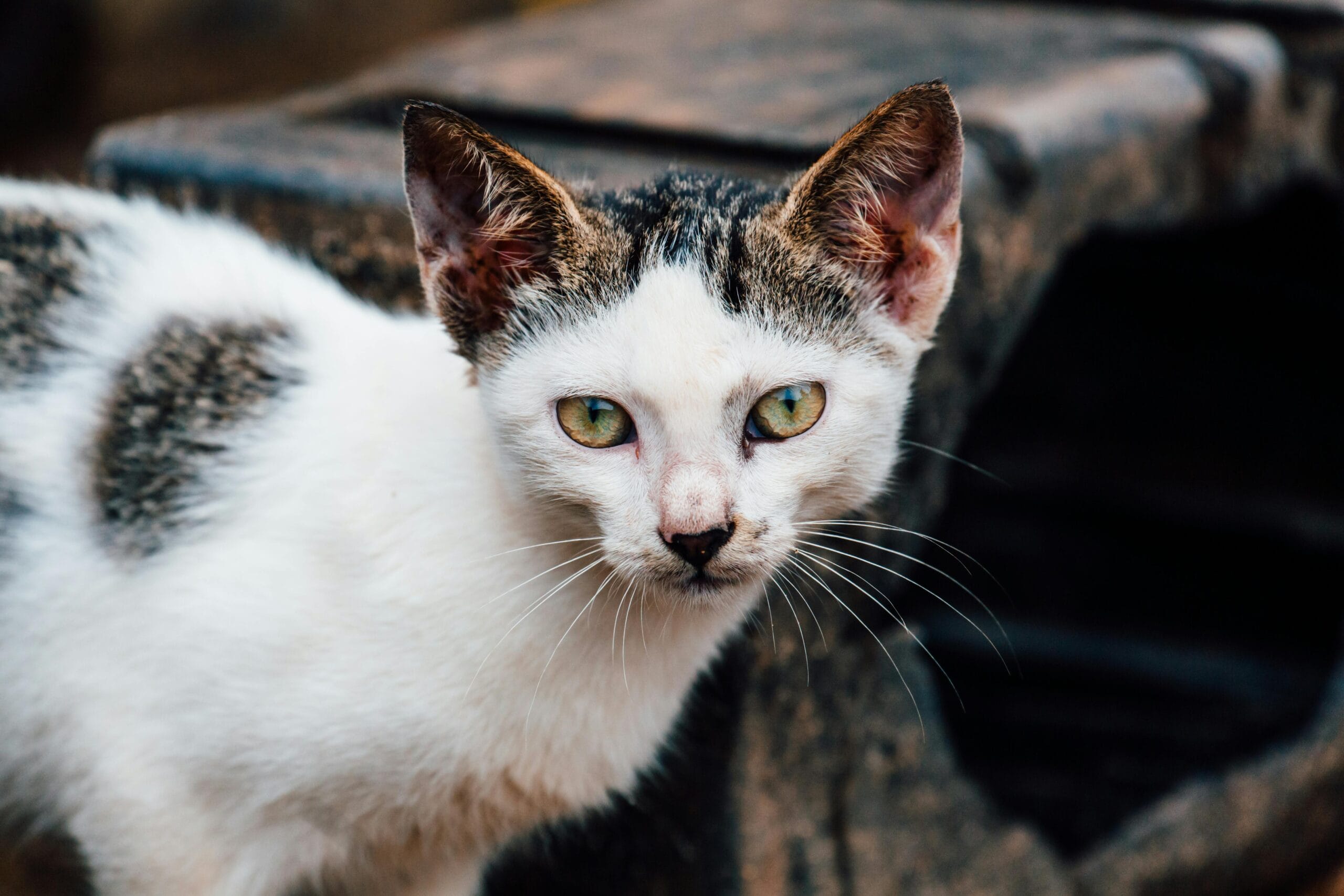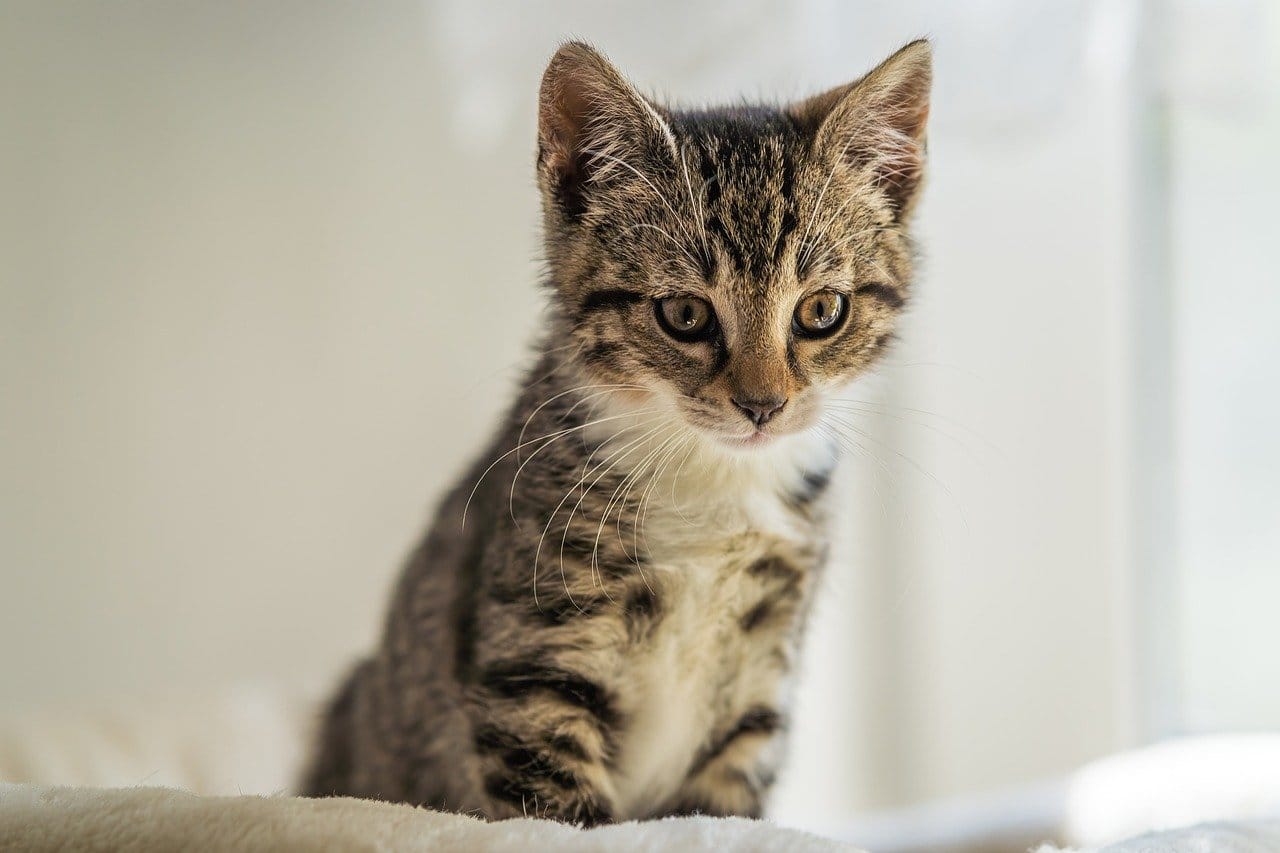Will Male Cats Kill Kittens ?

Will male cats kill kittens? Uncover the truth about male cat infanticide & tom cat killing kittens. Learn the facts, understand the risks, and protect your feline family. Find answers now!
Will Male Cats Kill Kittens? Understanding Male Cat Infanticide
The question, “Will male cats kill kittens?,” is a concerning one for many cat owners, particularly those with unneutered tomcats. While not all male cats will commit infanticide, the possibility is a significant reason why neutering is strongly recommended. This comprehensive guide will delve into the reasons behind male cat infanticide, the factors that increase the risk, and what you can do to protect your kittens.
Understanding Male Cat Infanticide: Why Do Tom Cats Kill Kittens?
Tom cat killing kittens isn’t always driven by malice. It’s a complex behavioral issue rooted in several biological and environmental factors. The most prevalent reason is linked to reproductive strategies. An unneutered male cat, upon encountering a litter of kittens that aren’t his own, may see them as competition for resources and mating opportunities. By eliminating the kittens, he increases his chances of the female cat entering heat again sooner, and thus, becoming receptive to his advances. This is a natural, albeit brutal, survival mechanism observed in many animal species.
Another contributing factor is the presence of unfamiliar scents. A male cat may become suspicious and aggressive if he detects unfamiliar scents on the kittens or their mother. This heightened sense of territoriality can trigger aggressive behavior, leading to the tragic outcome of male cat infanticide. This heightened response is further amplified if the male cat is stressed, feels threatened, or is simply unfamiliar with the kitten’s existence.
Factors Increasing the Risk of Male Cat Killing Kittens
Several factors significantly increase the risk of a male cat killing kittens. Understanding these factors can be crucial in preventing this tragic scenario. Firstly, the most prominent factor is the lack of neutering. Unneutered males are far more likely to exhibit this behavior due to their inherent drive to reproduce and eliminate competition. This underlines the importance of early neutering.
Secondly, the presence of a new male cat in a household where kittens are present significantly raises the risk. A newly introduced male, particularly an unneutered one, may view the kittens as a threat, leading to aggressive behavior and even infanticide. This highlights the need to carefully introduce new animals to the household.
Thirdly, stress and a lack of resources can also contribute to this behavior. If a male cat is stressed, underfed, or lacking suitable living space, it can exacerbate territorial aggression, increasing the risk of Tom cat killing kittens. Maintaining a calm and enriched environment for your cats is vital.
Finally, the mother cat’s behavior also plays a role. If the mother cat is overly stressed or unable to protect her kittens effectively, this increases vulnerability to attack by a male cat. Providing ample support to the mother cat is crucial for her wellbeing and the safety of her offspring.
Preventing Male Cat Infanticide: Strategies for Safeguarding Kittens
Prevention is always better than cure. The most effective way to prevent Will male cats kill kittens is through responsible pet ownership. Neutering your male cat is the single most important step you can take. This significantly reduces the likelihood of aggressive behavior driven by reproductive instincts. Early neutering (before sexual maturity) is strongly advised by vets worldwide.
Introducing new cats carefully is also essential. Allow the cats to gradually adjust to each other’s presence, using scent-swapping techniques and supervised interactions, before allowing full interaction. Ensure the mother cat has a safe and secure space where she and her kittens can retreat from any potential threats.
Providing a stress-free and enriched environment is also vital. Ensure your cats have adequate food, water, litter boxes, scratching posts, and plenty of space to play and rest. A happy and healthy cat is far less likely to exhibit aggressive behaviors. Providing ample resources also reduces competition between resident cats.
If you are concerned about a specific male cat’s behavior, consulting a veterinarian or a certified cat behaviorist is highly recommended. They can offer tailored advice and support based on your individual circumstances. For further reading, exploring the resources available at the ASPCA website can provide valuable insights into cat behavior and welfare.
Signs That a Male Cat Might Harm Kittens
Recognizing warning signs is crucial in preventing Will male cats kill kittens scenarios. While not all cats will show overt aggression, some behavioral changes can indicate a potential risk. Increased staring at the kittens, hissing, growling, or swatting at them are all serious warning signs. Changes in the male cat’s demeanor, such as increased anxiety or agitation, should also be closely monitored.
Pay close attention to the body language of both the male cat and the mother cat. If the mother cat appears fearful or stressed in the presence of the male cat, it is a clear indicator of potential danger to her kittens. Observe carefully for any signs of subtle aggression, such as flattened ears, dilated pupils, or a tense body posture.
It’s also important to monitor the kittens’ behavior. If the kittens appear excessively withdrawn, fearful, or distressed, it’s a sign that something is wrong. They may exhibit signs of injuries, such as scratches or bites, that could indicate prior attacks. Regular monitoring of the kittens’ health and behavior is crucial.
The Role of Neutering in Preventing Male Cat Infanticide
Neutering your male cat significantly reduces the likelihood of male cat infanticide. This simple procedure eliminates the hormonal drive that fuels reproductive behaviors, including aggression towards kittens. By removing the testes, the production of testosterone, the hormone largely responsible for aggressive behavior, is greatly reduced.
Many studies have shown a strong correlation between unneutered male cats and kitten mortality. Neutering reduces territorial aggression, which is a major factor contributing to infanticide. Furthermore, neutering also contributes to improved overall health for your cat, reducing the risk of several health problems later in life. The Vets Now website provides comprehensive information on the benefits of neutering.
The benefits of neutering extend beyond the prevention of Tom cat killing kittens. It also reduces the risk of unwanted pregnancies, leading to fewer stray cats and reducing the burden on animal shelters. It is a responsible and ethical choice for pet owners.
Seeking Professional Help: When to Consult a Veterinarian or Behaviorist
If you suspect a male cat is a risk to kittens, or you’ve witnessed any aggressive behavior, seeking professional help is crucial. A veterinarian can provide a physical examination to rule out any underlying medical conditions contributing to aggressive behaviors. A certified cat behaviorist can offer tailored advice and behavior modification strategies. They can assess the interactions between the cats and create a plan to improve their co-existence.
Early intervention is key in resolving potential conflict. Ignoring the warning signs can have disastrous consequences for the kittens and may escalate the situation, making it harder to manage. Do not hesitate to seek professional help – it’s a sign of responsible pet ownership and can save lives.
Remember, addressing Will male cats kill kittens concerns proactively is essential for maintaining a safe and harmonious household for all your feline companions. It is important to emphasize the value of responsible pet ownership, including prompt veterinary care, early neutering, and early intervention in behavioral issues.
For further information on responsible cat ownership, consult the resources available at the Cats Protection website. This reputable organization offers extensive advice and support for cat owners.
Conclusion: Understanding and Preventing Male Cat Infanticide
The question, “Will male cats kill kittens?,” unfortunately, has a complex and sometimes tragic answer. While not all male cats will engage in infanticide, the risk is real and significant, particularly with unneutered males. Understanding the underlying reasons, identifying risk factors, and taking preventive measures are crucial for responsible cat ownership. Early neutering, careful introductions, a stress-free environment, and prompt professional help when needed are vital steps in ensuring the safety of your kittens.
Have You Experienced Male Cat Infanticide? Share Your Story!
We understand that male cat infanticide is a sensitive and emotionally charged topic. Your experiences, insights, and advice can help others prevent this tragedy. Share your stories, tips, and questions in the comments section below. Let’s build a supportive community dedicated to feline welfare and responsible pet ownership. Your experiences with Will male cats kill kittens and the strategies you’ve used to prevent such incidents are invaluable to others. We encourage you to share your experiences and insights in the comments section below!

10 FAQs about Male Cats Killing Kittens:
1. Will male cats kill kittens?
Yes, unfortunately, male cat infanticide, also known as Tom cat killing kittens, is a documented phenomenon. While not all male cats will do this, it’s a risk, particularly if the kittens aren’t his own.
2. Why would a male cat kill kittens?
Several reasons contribute to Male Cat Infanticide. The primary reason is to bring the female cat back into heat sooner, allowing him to father his own offspring. This is an evolutionary strategy, though cruel from a human perspective. Other reasons can include stress, territoriality, or even accidental injury during rough play.
3. Will a neutered male cat kill kittens?
While neutering significantly reduces the likelihood of Male Cat Infanticide, it doesn’t eliminate the risk entirely. Hormones aren’t the sole factor; learned behaviors and individual personalities also play a role.
4. How can I prevent my male cat from killing kittens?
Keeping male cats separated from female cats and their kittens, especially during the critical first few weeks, is crucial. Early neutering is highly recommended to reduce hormonal influences. Providing a safe, secure environment for the mother and kittens can also minimize stress.
5. My male cat is acting aggressively towards my kittens – what should I do?
Immediate separation is vital. Consult a veterinarian immediately. They can assess the situation and provide advice on managing the aggression, possibly involving behavior modification techniques. Tom cat killing kittens is a serious issue requiring professional help.
6. Is it always intentional when a male cat kills a kitten?
Not always. While often intentional to accelerate breeding opportunities (Male Cat Infanticide), sometimes injuries or killings happen accidentally, particularly with large, boisterous males and very small kittens. However, this doesn’t diminish the tragedy.
7. Will a male cat kill his own kittens?
While less common, it is possible. Stress, illness, or even a perceived threat to the kittens’ survival can trigger such behavior, even in a cat who is the biological father.
8. My male cat lives outdoors – is he more likely to kill kittens?
Outdoor male cats are potentially more exposed to stressful situations and have increased opportunities for encountering unrelated kittens. This raises the risk of Male Cat Infanticide compared to indoor-only cats.
9. Are certain breeds more likely to exhibit Male Cat Infanticide?
There’s no scientific evidence suggesting a particular breed is inherently more prone to Tom cat killing kittens. Individual temperament and experiences are stronger predictors of this behavior.
10. I’m considering getting a male cat – is it risky to have kittens around?
It presents a significant risk. Unless you are absolutely certain about the male cat’s temperament and have stringent separation measures in place, it’s best to avoid having kittens and an unneutered male cat together. Early neutering is strongly recommended.

Will Male Cats Kill Kittens? Practical Tips & Health Considerations
The question of whether male cats will kill their kittens is complex. While it’s not always the case, several factors increase the risk. Understanding these factors is crucial for responsible cat ownership.
Factors Increasing the Risk of Kitten Infanticide
- Stress: A stressed male cat, due to overcrowding, unfamiliar environments, or changes in routine, may exhibit aggressive behavior, potentially harming kittens.
- Unfamiliar Kittens: Male cats are less likely to kill their own offspring than kittens they don’t recognize as their own. This is especially true if the male was not present during the pregnancy and birth.
- Lack of Maternal Care: If a queen (mother cat) is unable to properly care for her kittens due to illness or neglect, the male cat may see them as a threat or simply remove them due to their poor condition.
- Breed Predisposition: While not definitive, some breeds are more prone to aggressive behaviors, which can encompass kitten infanticide.
- Hormonal Influences: Intact males (those not neutered) have higher testosterone levels, potentially increasing aggression.
Practical Tips to Minimize Risk
- Neutering: Spaying or neutering reduces hormonal influences associated with aggression. This is one of the most effective preventative measures.
- Controlled Environment: Provide a safe, quiet, and secluded space for the queen and her kittens, away from other cats and potential stressors.
- Early Introduction: If introducing a male cat to kittens, do it gradually and under controlled circumstances, allowing for slow acclimation.
- Queen’s Health: Ensure the mother cat is healthy and receiving proper nutrition, enabling her to care effectively for her kittens.
- Monitoring: Regularly observe the interactions between the male cat and kittens, particularly during the early weeks. Any sign of aggression should be addressed immediately.
Health Considerations
If infanticide occurs, it’s crucial to address the underlying causes. This may involve veterinary care for the queen or male cat, addressing stress factors in the environment, or seeking advice from a feline behaviorist.
SEO Keywords:
male cat kills kittens, kitten infanticide, cat aggression, neutering cats, prevent cat aggression, responsible cat ownership, cat behavior, feline behaviorist, cat health